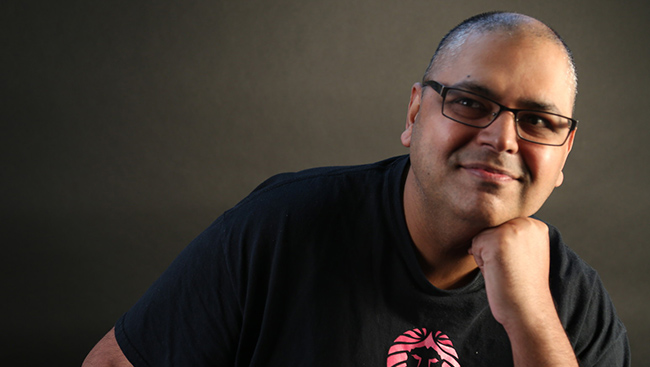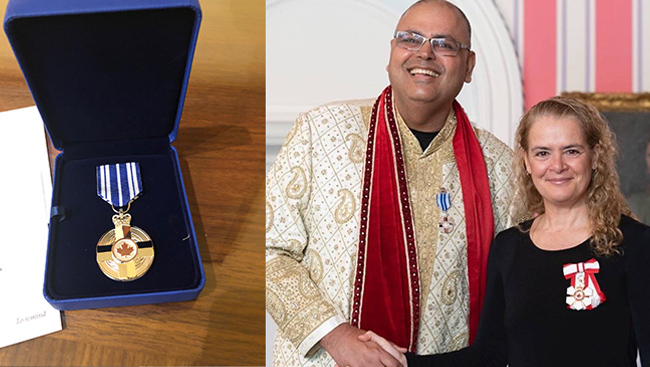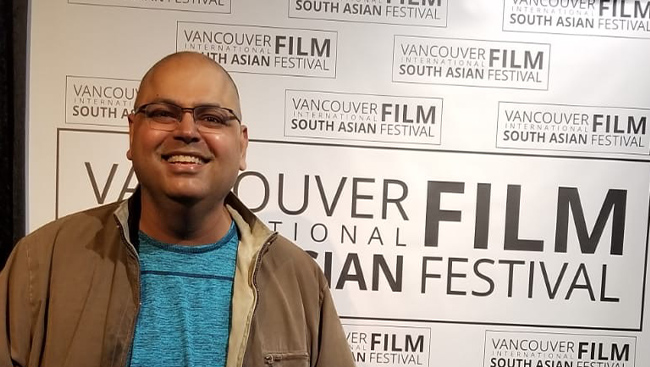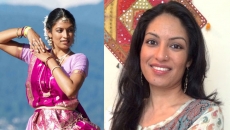Living as a Creative Humanitarian: Why I Decided to Come out After 30 years - Alex Sangha
Bipolar disorder or manic depression is defined by Wikipedia as "a mental disorder characterized by periods of depression and abnormally elevated moods. If the elevated mood is severe or associated with psychosis, it is called mania; if it is less severe, it is called hypomania."
Growing up with bipolar disorder in a South Asian family was not easy. My family did not know what was happening to me. I felt guilty for being depressed and unable to work. Some people told me that “depression was just in my head and that I am being lazy.” I expected the worst and there was very little hope. I felt alone, scared, and vulnerable.
Living with bipolar disorder can cause several life setbacks. For instance, I had to delay my admission to UBC by a year because I was hospitalized with severe mania. The treatment and medications often come with bad side effects such as extreme weight gain and drowsiness.
The support of family and friends is very important. The people close to you can monitor the signs and symptoms of your illness. Their support can help reduce stress, which can reduce relapse.
I strongly believe people living with bipolar disorder can not only survive but thrive. In the past, I was afraid if I was public about my condition that I would be stigmatized in the workplace and I feared being “conveniently dismissed” as someone who is not fit to do the job.

Why I came out as living with Bipolar after 30 years
Even-though many friends and family tried to stop me from coming out, mainly due to the stigma associated with mental illness, I was tired of living a double life. I want to be honest about my strengths and struggles. Life is short and I want to make a difference helping others. So I decided to come clean about my condition after 30 years of living with bipolar disorder. My goal was to give hope and share my story. I saw no point in struggling with bipolar for about 30 years if I am not going to share what I learned and accomplished with the community. To my surprise, the response I received was overwhelming and emotional. I have received many messages from people and families in the community who thought they were in this alone. One person even said that my story and life experiences and ability to achieve despite my struggles are very inspirational for many other people living with mental illness or suffering in silence. Many commented on how it changed their perspective about this condition.
I am immensely proud to have an established and flourishing counselling business. I work for myself and I am in control of my life. As a result, I feel now was the time to go public about being “blessed with bipolar.” In fact, I feel it makes me a better counsellor. I subscribe to Freud’s philosophy that the best therapists have gone through therapy themselves. Being bipolar has provided me with insight, resilience, and empathy for others.

Secondly, I want to reduce the stigma and discrimination that people with bipolar disorder face. For instance, at the age of 19, when I was first diagnosed, the psychiatrist told my mother to not expect me to go to university. During my second hospitalization, the social worker wrote that I should not apply to be a social worker because I was non-compliant with my medication. I have since completed two master’s degrees and even received an award from the BC Association of Social Workers for advocacy.
And Third, I would like to educate the general public about the many benefits of living with bipolar disorder. For instance, during the highs, I am very productive. I graduated from a prestigious Masters program in Public Administration and Public Policy in the Department of Government at the London School of Economics where I was admitted on a partial entrance scholarship. In addition, I founded a growing non-profit organization called Sher Vancouver, published a book entitled “Catalyst,” and produced a short documentary called “My Name Was January,” that won 14 international awards and garnered 63 official selections at film festivals around the world. The film also entered the Canadian Screen Awards for Best Short Documentary in 2020.

With bipolar disorder, I can view the world from three different perspectives when my mood is low, high, and more in the middle. This makes me a very creative individual. In fact, I feel a label as a “creative humanitarian,” more accurately reflects my current situation and abilities.
By coming out as a person suffering from bipolar disorder, I am creating a custom world around me that I can handle. I believe in a holistic approach to treatment, including medication, counselling, nutritious diet, exercise, socialization, support groups, family support, good sleep, and low stress. I find swimming really helpful for the body, mind, and spirit.
Last, I want the mental health system to focus less on the “medical model” and more on a “holistic strengths-based approach.” I feel my brain chemistry and my moods may be different than the average person but that does not mean I am not a capable person. In fact, I don’t even like being labelled as having a “mental illness.” I am not an illness! I am a human being with feelings, emotions, strengths, and potential.
I am a “creative humanitarian.”

ABOUT THE AUTHOR
Alex Sangha is a Registered Clinical Social Worker and Registered Clinical Counsellor in BC. He is the recipient of the Meritorious Service Medal from the Governor General of Canada. He is currently involved with a non-profit organization for gay, lesbian, bisexual, and transgender South Asians and friends called Sher Vancouver. Contact: alexsangha@gmail.com







